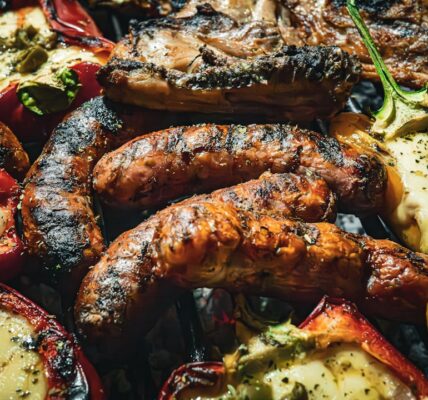The role of a papa extends far beyond the traditional expectations of fatherhood. In many cultures, the term “papa” evokes a sense of warmth, guidance, and unconditional love. A papa is often seen as a protector, a mentor, and a source of wisdom.
This multifaceted role encompasses not only the responsibilities of providing for the family but also nurturing emotional connections that foster growth and development in children. A papa is someone who actively participates in the lives of his children, engaging in their interests, supporting their dreams, and helping them navigate the complexities of life. In contemporary society, the role of a papa has evolved significantly.
No longer confined to the archetype of a distant authority figure, modern papas are more involved in day-to-day parenting tasks. They change diapers, attend school events, and engage in playtime with their children. This shift reflects a broader understanding of parenting as a shared responsibility, where emotional availability and active participation are paramount.
The modern papa is not just a provider; he is an integral part of his children’s emotional landscape, shaping their values and beliefs through shared experiences and open communication.
Qualities of a Great Papa
The Power of Patience
Parenting can be an unpredictable journey filled with challenges, and a great papa understands the importance of remaining calm and composed in the face of adversity. Whether it’s dealing with a tantrum or navigating the complexities of teenage angst, patience allows him to respond thoughtfully rather than react impulsively. This quality fosters an environment where children feel safe to express themselves without fear of judgment.
The Gift of Empathy
A great papa possesses the ability to understand and share the feelings of his children. This emotional intelligence enables him to connect with them on a deeper level, validating their experiences and emotions. For instance, when a child faces disappointment—be it from losing a game or struggling with schoolwork—a papa who can empathize will provide comfort and encouragement rather than dismissing their feelings.
A Lasting Impact
This connection not only strengthens the bond between father and child but also teaches children the importance of empathy in their own relationships.
Celebrating Fatherhood

Celebrating fatherhood is an essential aspect of recognizing the contributions that papas make to their families and society at large. Events like Father’s Day serve as reminders to honor the sacrifices and efforts made by fathers everywhere. These celebrations often include heartfelt gestures such as handmade cards, special meals, or family outings that highlight the unique bond between fathers and their children.
Such occasions provide an opportunity for families to reflect on the positive impact that papas have on their lives. Moreover, celebrating fatherhood goes beyond just one day on the calendar; it involves acknowledging the everyday moments that define the father-child relationship. From bedtime stories to weekend adventures, these seemingly mundane activities are the building blocks of lasting memories.
By creating traditions—whether it’s a weekly game night or an annual camping trip—families can cultivate a sense of belonging and appreciation for one another. These rituals not only strengthen familial ties but also instill values that children carry into adulthood.
The Bond Between Grandparents and Grandchildren
| Metrics | Data |
|---|---|
| Number of Grandparents | 1.7 billion worldwide |
| Number of Grandchildren | Over 100 million in the US |
| Frequency of Contact | 40% of grandchildren see their grandparents at least once a week |
| Impact on Grandchildren | Studies show that close relationships with grandparents can have positive effects on children’s well-being |
| Activities with Grandparents | Common activities include storytelling, baking, and playing games |
The bond between grandparents and grandchildren is often characterized by a unique blend of love, wisdom, and playfulness that enriches family dynamics. Grandparents frequently serve as a bridge between generations, offering insights drawn from their own life experiences while also embracing the fresh perspectives brought by younger family members. This relationship can be particularly beneficial for grandchildren, who often find comfort in the unconditional love and support that grandparents provide.
One of the most significant aspects of this bond is the opportunity for storytelling. Grandparents often share tales from their youth, imparting lessons learned through trials and triumphs. These stories not only entertain but also serve as valuable teaching moments for grandchildren, helping them understand their family history and cultural heritage.
Additionally, grandparents often have more time to devote to their grandchildren compared to busy parents, allowing for deeper connections through shared activities like gardening, baking, or simply enjoying nature together.
Advice for New Papas
For new papas embarking on the journey of fatherhood, navigating this new role can be both exhilarating and daunting. One crucial piece of advice is to embrace vulnerability. New fathers may feel pressure to project strength and confidence; however, acknowledging one’s fears and uncertainties can foster deeper connections with their partners and children.
Open communication about feelings can create a supportive environment where both parents can share responsibilities and experiences. Another important aspect for new papas is to prioritize self-care. The demands of parenting can be overwhelming, leading to stress and burnout if not managed properly.
Taking time for oneself—whether through exercise, hobbies, or simply enjoying quiet moments—can rejuvenate a new papa’s spirit and enhance his ability to engage with his family positively. By modeling self-care practices, new papas also teach their children the importance of mental health and well-being.
Honoring the Legacy of Papas

Honoring the legacy of papas involves recognizing the profound impact they have had on their families and communities throughout history. Many cultures celebrate paternal figures through rituals, storytelling, and commemorative events that highlight their contributions. For instance, in some Indigenous cultures, grandfathers are revered as keepers of wisdom, passing down traditions and teachings that shape future generations.
This reverence underscores the importance of acknowledging the sacrifices made by fathers in various forms. Additionally, honoring papas can take shape through acts of remembrance and gratitude. Families might create memory books filled with photographs and anecdotes that capture special moments shared with their fathers or grandfathers.
These tangible reminders serve not only as tributes but also as tools for teaching younger generations about their heritage and familial values. By sharing stories about their fathers’ lives—both challenges faced and triumphs achieved—families can ensure that the legacies of papas continue to inspire future generations. In conclusion, the role of a papa is multifaceted and deeply impactful, encompassing qualities such as patience and empathy while fostering strong bonds with children and grandchildren alike.
Celebrating fatherhood allows families to honor these relationships through meaningful traditions and shared experiences. For new papas, embracing vulnerability and prioritizing self-care are essential steps in navigating this rewarding journey. Ultimately, honoring the legacy of papas ensures that their contributions are remembered and cherished for years to come.




